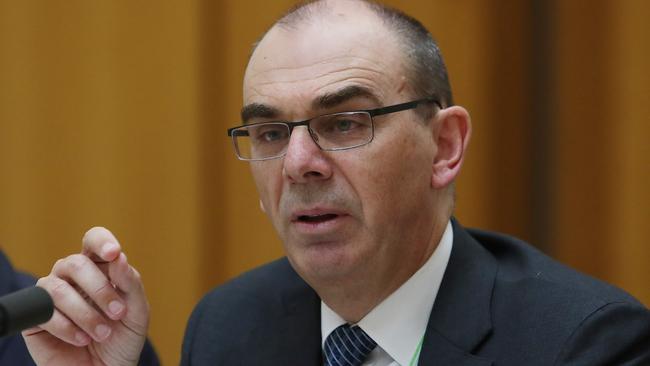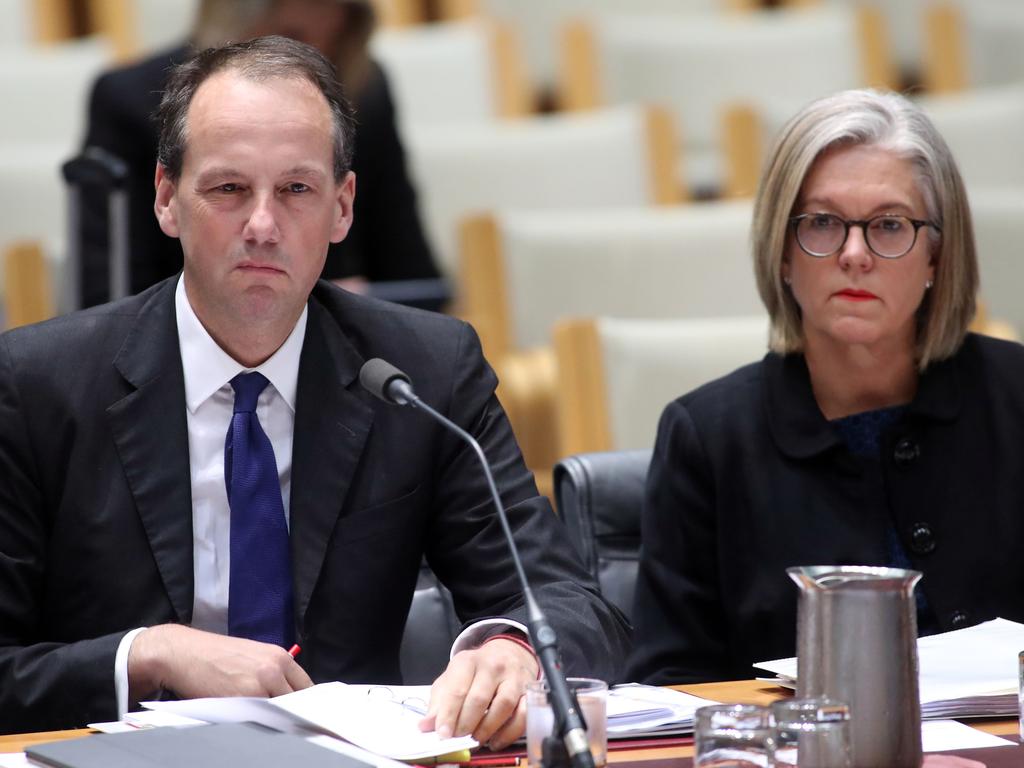APRA poised for more post-Hayne enforcement action
The prudential regulator is set for more enforcement action, and backs cap on bank dividend payouts instead of outright ban.

The prudential regulator will take enforcement action in the next four to six weeks against one of the 10 entities targeted as a result of the Hayne royal commission, federal parliament has heard.
Deputy chairman John Lonsdale told the House economics committee on Wednesday that the Australian Prudential Regulation Authority had determined its course of action in relation to eight of the 10 companies.
“For the (remaining) two, one is very close to landing — in the next four to six weeks we’ll have a clear position on what we’re going to do with that entity — and the 10th one is very much in progress,” Mr Lonsdale said.
The targeted entities, he said, attracted 12 referrals, but in each case there is no actual penalty because that was the law at the time.
Penalty provisions have since been introduced, replacing the power to impose directions or license conditions.
In other developments, chairman Wayne Byres rejected suggestions that APRA should have followed the New Zealand model and banned bank dividends instead of imposing a cap equal to half of earnings, especially when the sector was receiving significant taxpayer support.
Mr Byres also said there was no intention to lower the economic forecasts on which last month’s revised dividend guidance was based, given the hit to activity from the harsher, stage four lockdown in Victoria.
This was because the guidance was only short-term, expiring at the end of the year, and it was formulated using the “downside” economic scenario instead of the baseline forecast used by the Reserve Bank and Treasury.
“So maybe the actual trajectory of the economy might be closer now to that downside scenario than it was a few weeks ago,” Mr Byres said.
“But nonetheless, we feel we’ve allowed for a significant deterioration in activity, so if there are some short-term setbacks they need not change the position we’ve adopted.
“Caution is our watchword and prudence is in our title.”
Under questioning by Labor MP and committee deputy chairman Andrew Leigh, the APRA chairman agreed that some European countries and New Zealand had taken a tougher line on bank dividends than Australia.
However, he noted that one of the regulator’s justifications for its revised dividend guidance was the high level of current government support.
The APRA chief said other jurisdictions like Singapore, Hong Kong, the US and Canada had no dividend restrictions at all.
Australia’s approach, he said, was tailored for local conditions, as was the case for NZ where the banking sector was foreign-owned and unlisted.
“We’re not telling (boards) to pay a particular level of dividends; we’re asking banks to consider their circumstances, their forecasts and their stress tests and decide what is appropriate,” Mr Byres said.
“But we did think it was important to set a prudent upper limit.”
In other evidence, deputy chair Helen Rowell acknowledged there would be an investment “drag” arising from the need to hold a higher proportion of more liquid assets to support the early release scheme.
Industry Super Australia chairman Greg Combet estimated on Tuesday that there would be a $2.6bn drag for members who hadn’t cleaned our their accounts.
Ms Rowell said cash levels in the system were currently higher than normal, but they would return to more normal levels “relatively quickly”.
Mr Byres rejected Liberal backbencher Craig Kelly’s criticism of APRA for its emphasis on climate change and lack of preparation for a pandemic.
A pandemic scenario, he said, was included in APRA’s stress-testing, and the regulator had released prudential guidance on the issue.
In response to Mr Kelly’s assertion that APRA had done nothing in relation to pandemic preparedness for 12 years, Mr Byres said the guidance had been updated several times over that period.
“We would regard the fact that the industry has withstood this period of significant disruption as evidence that it has had an effect,” he said.
Mr Kelly asked APRA to take on notice his request to identify any mention of pandemic risk in a press release or speech over the last five years.







To join the conversation, please log in. Don't have an account? Register
Join the conversation, you are commenting as Logout